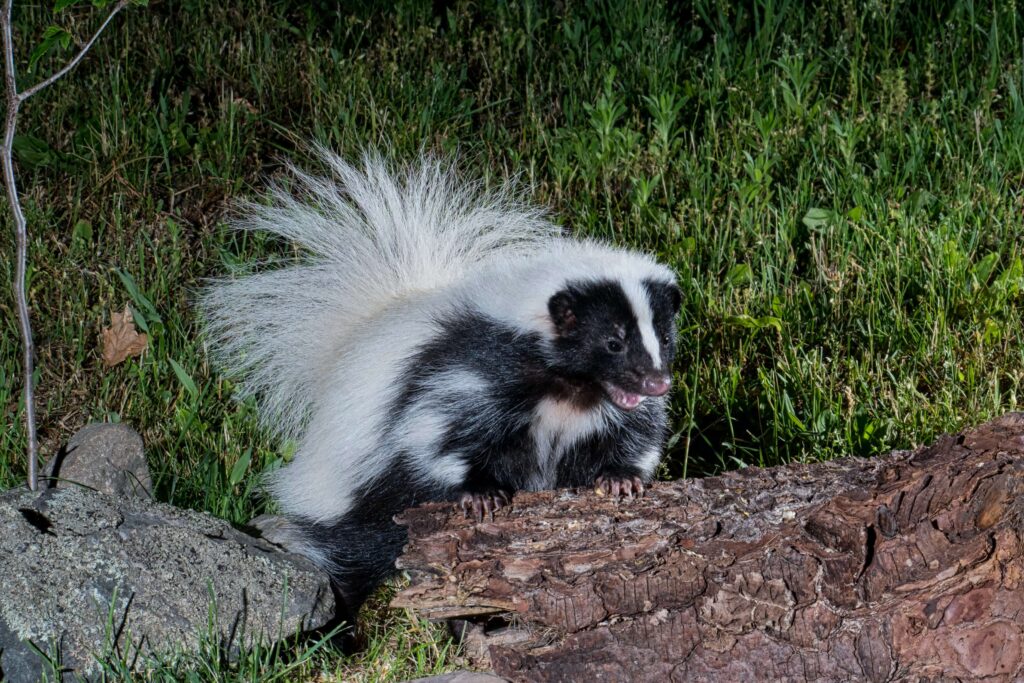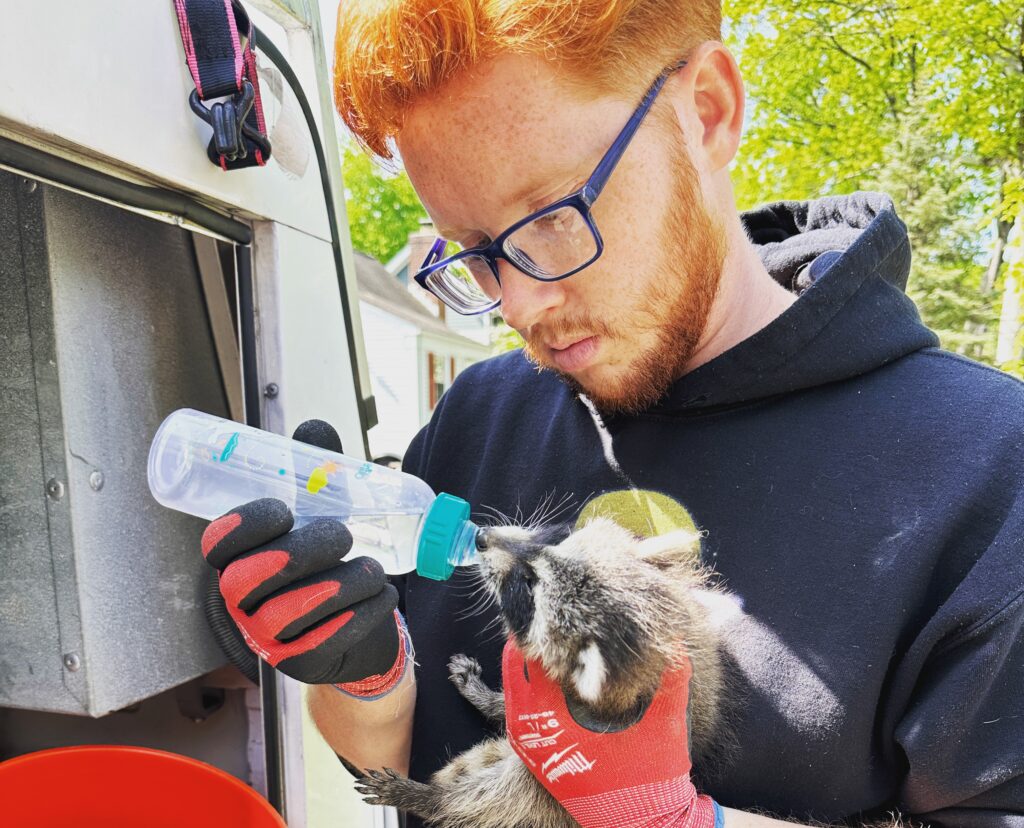In the picturesque landscapes of New Jersey, residents often find themselves sharing their neighborhoods with a variety of wildlife. Among these, encounters with skunks have become increasingly common, prompting the need for a comprehensive understanding of the regulations and best practices surrounding skunk removal in the Garden State. As urban areas expand and intertwine with natural habitats, the delicate balance between human communities and wildlife is more crucial than ever. In this context, the significance of proper skunk removal techniques cannot be overstated.
The focus of this exploration lies in the realm of Skunk Removal NJ, delving into the legal landscape and ecological considerations associated with managing skunk populations. While these small, striped mammals are known for their distinct odor, navigating their presence requires more than just addressing the olfactory challenges. By examining the local regulations governing wildlife removal, we aim to shed light on the nuanced practices essential for a harmonious coexistence between residents and the diverse wildlife inhabiting New Jersey. Join us as we embark on a journey to uncover the intricacies of skunk removal, balancing the need for humane practices with adherence to regulatory frameworks.
Key Takeaways
- Skunk removal in New Jersey necessitates adherence to local regulations, including permits and restrictions.
- Prioritize humane methods for skunk removal to ensure the well-being of both residents and wildlife.
- Seek expert help for skunk removal, avoiding DIY methods to mitigate risks and ensure effective and lawful practices.
- Understand the risks associated with DIY removal, including potential legal consequences, and prioritize safety.
- Implement preventive measures to deter skunks, including securing garbage, sealing entry points, and modifying habitats.
The Skunk Situation in New Jersey
Against the backdrop of New Jersey’s scenic landscapes, the skunk situation has become a noteworthy aspect of local wildlife encounters. Residents across the state find themselves navigating the challenges posed by the presence of skunks, requiring a nuanced approach to their removal. The frequency of skunk encounters has risen, prompting a closer look at the environmental impact and concerns associated with their presence in communities.
Skunk removal in New Jersey has transcended beyond being a mere nuisance, evolving into a conversation about effective and humane methods to address this issue. As urbanization encroaches upon natural habitats, the need for responsible management of skunk populations is more critical than ever. Beyond the occasional unpleasant odor, understanding the broader implications of the skunk situation involves examining the ecological balance within the state.
This section aims to delve into the complexities of the skunk situation in New Jersey, paving the way for a comprehensive exploration of the legal landscape and best practices associated with skunk removal. By contextualizing the challenges posed by these striped inhabitants, we can better appreciate the need for a balanced and informed approach to coexisting with skunks in the Garden State.
Skunk Removal in New Jersey: Legal Landscape
Navigating the legal landscape surrounding skunk removal in New Jersey is essential for residents and wildlife management professionals alike. As the frequency of skunk encounters continues to rise, understanding the regulations governing their removal becomes paramount. Local authorities have established a framework to address wildlife management, including specific guidelines related to skunk removal in NJ.
Permits and restrictions play a crucial role in ensuring that the process is conducted responsibly and in accordance with established norms. Skunk removal in New Jersey is subject to these regulations, designed to strike a balance between safeguarding public safety and preserving the welfare of local wildlife populations. Failing to comply with these legal requirements may lead to consequences, making it imperative for individuals and wildlife removal services to be well-versed in the legal intricacies of skunk removal in the state.
This section explores the legal dimensions of skunk removal in New Jersey, shedding light on the permits required and the restrictions imposed by local authorities. By unraveling the legal landscape, we aim to provide a comprehensive understanding of the framework that governs skunk removal practices, fostering a responsible and lawful approach to managing skunk encounters in the Garden State.
Best Practices for Skunk Removal in New Jersey
Embarking on the journey of skunk removal in New Jersey necessitates a commitment to best practices that prioritize both efficacy and ethical considerations. As encounters with these small, striped mammals become more prevalent, understanding the nuances of responsible skunk removal becomes imperative. The Garden State, with its diverse ecosystems, demands a thoughtful approach that goes beyond mere eradication.
Humane removal methods stand out as a cornerstone of best practices in skunk removal in NJ. Recognizing the intrinsic value of these creatures in the local ecosystem, professionals and residents alike are encouraged to prioritize methods that ensure the well-being of skunks while addressing the concerns of those affected. Striking a balance between efficacy and compassion is key to fostering a coexistent relationship between humans and skunks.
Amidst the various challenges posed by skunk encounters, there’s a need to caution against the pitfalls of DIY removal. Best practices underscore the importance of seeking professional wildlife removal services in New Jersey, equipped with the knowledge of local regulations and the expertise to navigate the intricacies of skunk removal responsibly. By adhering to these best practices, residents contribute to the overall harmony of their communities, ensuring that skunk removal in New Jersey is approached with a comprehensive and ethical perspective.

Environmental Considerations
Delving into the realm of skunk removal in New Jersey, it is crucial to broaden our perspective beyond immediate concerns and consider the broader environmental implications of these removal efforts. The delicate balance of ecosystems in the Garden State can be significantly impacted by the methods chosen for skunk removal. As we navigate the coexistence between urbanization and nature, understanding the environmental considerations associated with skunk removal becomes paramount.
The removal of skunks, while addressing immediate issues, must be approached with an awareness of the potential repercussions on local ecosystems. These small mammals play a role in controlling insect populations and contributing to ecological balance. Therefore, any intervention must be conducted with a focus on minimizing disruption to the natural order.
Balancing the necessity of skunk removal in New Jersey with environmental conservation involves exploring eco-friendly options. By prioritizing methods that minimize ecological impact, residents and professionals can contribute to the preservation of the diverse ecosystems within the state. This section seeks to unravel the intricate relationship between skunk removal and the environment, emphasizing the importance of mindful practices that safeguard both human communities and the natural world.
Community Awareness and Education
In the realm of skunk removal in New Jersey, fostering community awareness and education emerges as a pivotal aspect of building a harmonious coexistence between residents and wildlife. As skunk encounters become more commonplace, it becomes essential to empower communities with knowledge that extends beyond immediate removal practices.
Educating residents about coexisting with skunks in New Jersey involves instilling an understanding of the ecological role these creatures play in local ecosystems. By appreciating their significance, community members can develop a sense of responsibility towards these striped inhabitants, prompting a more informed approach to their removal. Awareness campaigns can highlight the importance of reporting skunk sightings to local authorities, facilitating a collective effort in managing their presence.
Moreover, raising awareness about the legal frameworks surrounding skunk removal in NJ ensures that community members are well-informed and compliant. By disseminating information on the permits required and the consequences of non-compliance, residents contribute to a culture of responsible wildlife management.
This section explores the significance of community awareness and education in the context of skunk removal, emphasizing the role of informed residents in creating a sustainable and balanced environment in New Jersey.
Case Studies: Successful Skunk Removal in NJ
Embarking on a journey to explore successful skunk removal cases in New Jersey sheds light on instances where the delicate balance between human habitats and wildlife has been effectively managed. These case studies serve as beacons, illustrating how professionals and communities navigate the challenges posed by skunk encounters while adhering to local regulations and best practices.
In one noteworthy case, a collaborative effort between wildlife removal experts and local authorities successfully addressed a surge in skunk sightings in a suburban neighborhood. By employing humane removal methods and educating residents on preventive measures, the community witnessed a reduction in skunk incidents without compromising the well-being of the creatures.
Another case underscores the significance of professional intervention. In a rural setting, a family grappling with persistent skunk issues sought the expertise of a licensed wildlife removal service. The professionals not only implemented effective removal strategies but also provided valuable insights into habitat modifications to deter future occurrences.
These case studies serve as testimonials to the effectiveness of strategic and responsible approaches to skunk removal in New Jersey. By showcasing instances where coexistence has been achieved without harm to wildlife or undue disruption to communities, these examples inspire others to adopt similar practices for a more harmonious relationship between residents and skunks.
FAQs
What do I do if I encounter a skunk on my property?
If you encounter a skunk, it’s best to remain calm and avoid sudden movements. Give the skunk plenty of space to retreat, and do not approach it. If the skunk seems injured or is a persistent nuisance, consider contacting professional wildlife removal services.
Is it legal to remove skunks from my property in New Jersey?
Skunk removal in New Jersey is subject to local regulations. It’s essential to check with local authorities to understand the legal requirements, including permits and restrictions, before attempting any removal.
How can I prevent skunks from entering my property?
Securing garbage cans, sealing potential entry points, and eliminating food sources can help deter skunks. Additionally, consider habitat modifications to make your property less attractive to skunks.
Are there humane methods for skunk removal?
Yes, humane methods for skunk removal exist. Professional wildlife removal services often employ live trapping and relocation techniques that prioritize the well-being of the skunk.
Can skunks carry diseases?
Skunks can carry diseases such as rabies. It’s important to avoid direct contact with skunks and ensure that pets are vaccinated against rabies.
Conclusion
In conclusion, navigating the complexities of skunk removal in New Jersey requires a comprehensive understanding of the legal, environmental, and community aspects associated with these encounters. As communities continue to expand into natural habitats, coexisting with wildlife, including skunks, becomes a shared responsibility. Our exploration has highlighted the importance of adhering to local regulations governing skunk removal in NJ, emphasizing the need for humane and eco-friendly practices.
Best practices underscore the significance of professional intervention, steering away from DIY approaches that may have unintended consequences. By considering the broader environmental implications and fostering community awareness, residents contribute to a more sustainable relationship with the diverse wildlife inhabiting the Garden State.
As you navigate the realm of skunk removal in New Jersey, we encourage you to prioritize responsible practices. For expert assistance and humane solutions, consider reaching out to professionals like Kritter Catchers. Call Kritter Catchers now at (973) 747-5455 to ensure that your skunk removal needs are met with expertise, adherence to regulations, and a commitment to the well-being of both residents and wildlife.

